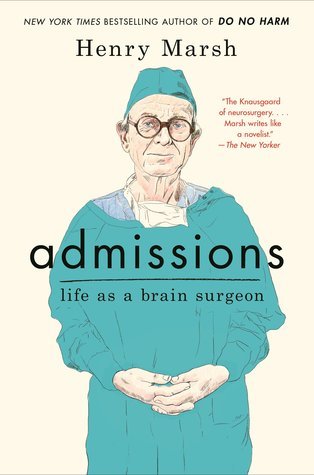More on this book
Community
Kindle Notes & Highlights
My subsequent life as a neurosurgeon was to teach me that the distinction between physical and psychological illness is false – at least, that illnesses of the mind are no less real than those of the body, and no less deserving of our help.
It is often said that it is better to leave too early rather than too late, whether it is your professional career, a party, or life itself. But the problem is to know when that might be.
The only certainties in life, as Benjamin Franklin once observed, are death and taxation. We all try to avoid both.
We sat in silence for several minutes. It is very important not to try to fill these sad silences with talking too much. I find it very difficult, but have got a little better at it over the years.
neurocysticercosis
filariasis
‘vagal tone’ – the activity in the vagus nerve, which controls many of our body’s functions in ways that we scarcely understand. It is a long nerve, which bypasses the spinal cord and reaches from the brain to the heart and many other organs, carrying information and instructions in both directions. It is an extraordinary nerve. Stimulation of the nerve with an electric current can help epilepsy, though nobody knows why. It can allow the generation of orgasms in women who are paralysed and have suffered complete destruction of the spinal cord. Apparently, people who have had it divided (an
...more
to see why so often trainees are left to operate on their own, learning the hard way, on the poor and the destitute, who are unlikely to complain if things go badly.
become impatient. I start to think they are incompetent. But it is very easy to underestimate the importance of endless practice with practical skills. You learn them by doing, much more than by knowing. It becomes what psychologists call implicit memory. When we learn a new skill the brain has to work hard – it is a consciously directed process requiring frequent repetition and the expenditure of energy. But once it is learnt, the skill – the motor and sensory coordination of muscles by the brain – becomes unconscious, fast and efficient. Only a small area of the brain is activated when the
...more
Psychologists talk of the ‘endowment effect’ – that we are more concerned about losing things than gaining them.
I know that everything I am, everything I think and feel, consciously or unconsciously, is the electrochemical activity of my billions of brain cells, joined together with a near-infinite number of synapses (or however many of them are left as I get older). When my brain dies, ‘I’ will die. ‘I’ am a transient electrochemical dance, made of myriad bits of information; and information, as the physicists tell us, is physical. What those myriad pieces of information, disassembled, will recombine to form after my death, there is no way of knowing.
I do not want it to be some prolonged and unpleasant experience, presided over by terminal-care professionals, who derive their own sense of meaning and purpose from my suffering. The only meaning of death is how I live my life now and what I will have to look back upon as I lie dying.


